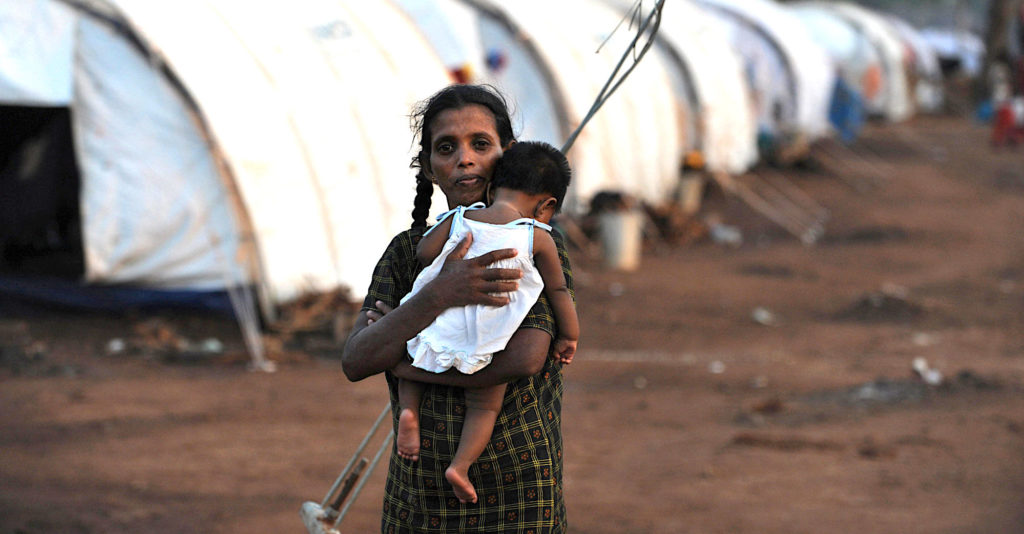Photo courtesy of Channel 4
I was 10 years old when Muslims were forced to move out of their homes in the North in October 1990. I never again saw or heard about the two Muslim students who were with us in my town Christian school. We had one Muslim family in our village who had a meat shop. It was my routine to visit the shop on Sundays after the church to buy some meat. They also left their home when the LTTE demanded that all Muslims leave Jaffna. Our village Muslim shop owner returned to our village and restarted his life after the end of the war in 2009.
I grew up as a child with the belief our land only belongs to Tamils. No one else has right to live in our homeland. My little brain was forced to become possessive of our Tamil land. I felt it was my duty to protect my land when I reached puberty. I believed sacrificing my life to liberate my land from the enemy was the calling of my life. Becoming a dead war hero was the pride of life for a Tamil in Jaffna during war.
My maternal grandfather, who followed Gandhi’s non violence way, always preached to us that if you take a gun you will die by a gun. He was against the Tamil youth who fought a war with weapons. But in 1990, when the Eelam War 2, started each family was forced to contribute to the war. My grandfather paid Rs. 5,000 in cash to the LTTE to buy weapons and my mother gave gold to support the war. Each Tamil was forced to contribute to the war. All Tamils obeyed and followed the command of our leader.
We never protested against the LTTE. We never questioned the LTTE. My grandfather was seen as a village leader and no one had the courage to argue with him. But when the LTTE took my aunt’s house to use as a resistance camp, my grandfather kept silent. For the first time in his life, my grandfather was powerless in front of a young man with a gun. He allowed his daughter’s house to be used as an LTTE camp.
During the Eelam war, the Tamil language came alive. We were forced to use ancient Tamil words. All the bill boards were in Tamil and bakery was changed into the Tamil word. The words we used normally in English such as ice cream were transformed into Tamil. We dreamt of an independent Tamil land for our future generations. We were recruited from schools through special talks and video presentations. We watched war movies from a young age. Our newspapers carried messages calling us to sacrifice our lives for the liberation of our Tamil land.
Five years after the Muslims left Jaffna, same loudspeakers that demanded they leave Jaffna asked us to leave too. The Muslims were forced to leave without any possessions; they left behind jewellery and cash but we were allowed to take what we could carry. The Muslims were forced to leave their homes within few hours without any reason but Tamils were encouraged to leave our homes before Army captured Jaffna. Most of the Tamils didn’t want to be captured by Army because of their experiences of torture and killings. We wanted to escape from the Army, so we left our homes for safety.
We failed to show sympathy for the Muslims who were forced to leave their homes in 1990. We never knew about their journey. Later, Tamils travelled our own unique path, walking in the rain balancing their possession of their heads or on their bicycles. They were packed on bridges and some waded through the water. Tamils lived under the trees. Tamils were soaked in the rain. Tamils ran from shells and bombs. Tamils spent our lives in schools, churches and temples.
The Jaffna exodus was like Moses leading Israelites into the promised land. Tamils became internally displaced people in our Tamil homeland. But still we lived in hope of our own homeland until the war ended in 2009, still children of Sri Lanka living as refugees around the world or in their own country.
